10 Forgotten Sitcoms That Deserve a Second Chance
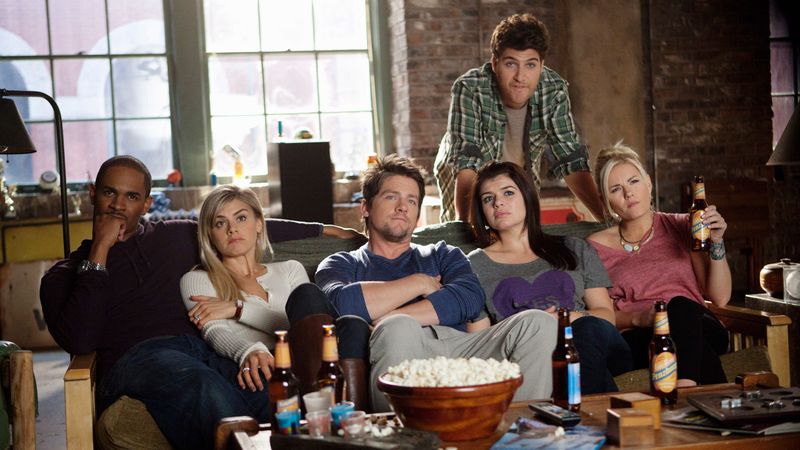
Remember when you’d stumble across a TV show that made you laugh out loud, only to discover it got canceled after just a season or two? Some of the funniest sitcoms never got the audience they deserved, vanishing before they could truly shine. These overlooked gems packed clever writing, memorable characters, and unique premises that were sometimes too ahead of their time.
1. Better Off Ted (2009-2010)
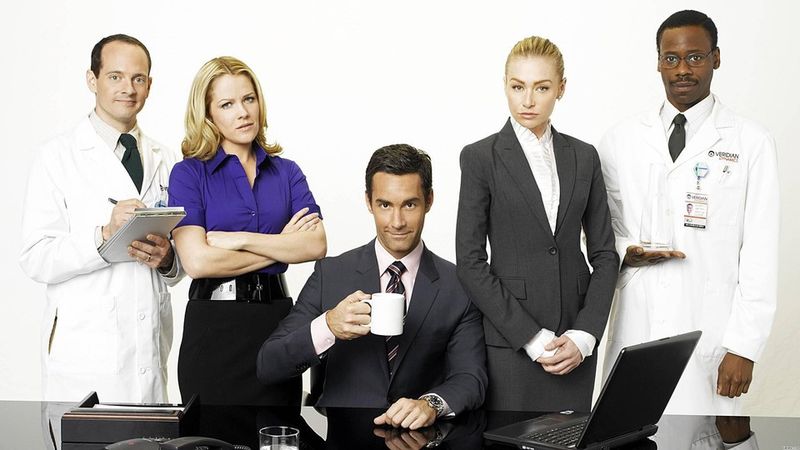
Veridian Dynamics wasn’t your average workplace, and Better Off Ted wasn’t your average comedy. This corporate satire followed Ted Crisp navigating the absurd world of a soulless tech conglomerate where ethics took a backseat to profit.
The show’s lightning-quick wit and spot-on parodies of corporate culture feel even more relevant today than when it aired. Portia de Rossi’s ice-cold Veronica and the mad scientist duo of Phil and Lem delivered some of TV’s most underappreciated comedy moments.
Despite critical acclaim, ABC never quite figured out how to market this smart workplace comedy that was essentially what would happen if The Office met Black Mirror – but with more laughs and fewer existential crises.
2. Happy Endings (2011-2013)
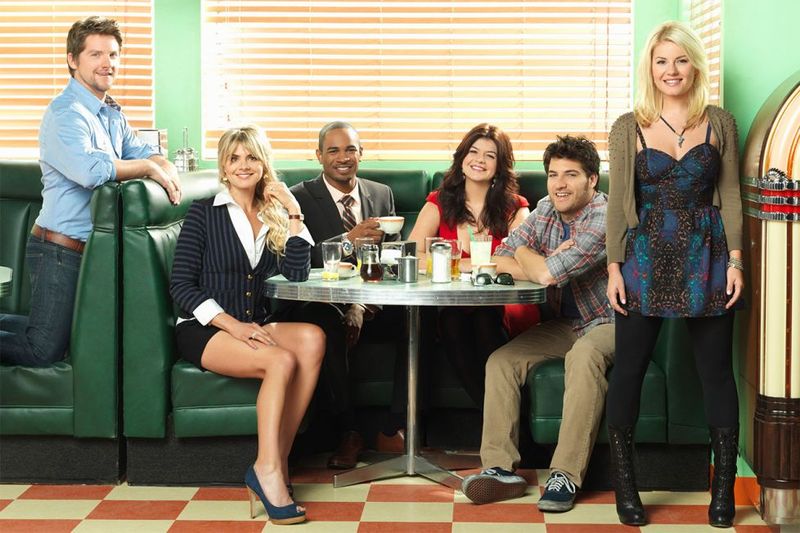
Six friends in Chicago, one canceled wedding, and endless quotable one-liners made Happy Endings comedy gold. The show hit its stride by cranking up character quirks to eleven while maintaining genuine heart underneath the zaniness.
What set this ensemble comedy apart was its rapid-fire dialogue and willingness to let characters be genuinely weird. From Penny’s desperate “ah-mah-zing” dating adventures to Max’s slovenly gay man stereotype-busting, the show constantly subverted expectations.
ABC’s scheduling shuffle doomed this gem to early cancellation, leaving fans wondering what could have been. The chemistry between the cast members was electric – they genuinely seemed like friends who’d known each other forever, not just actors reading lines.
3. Enlisted (2014)
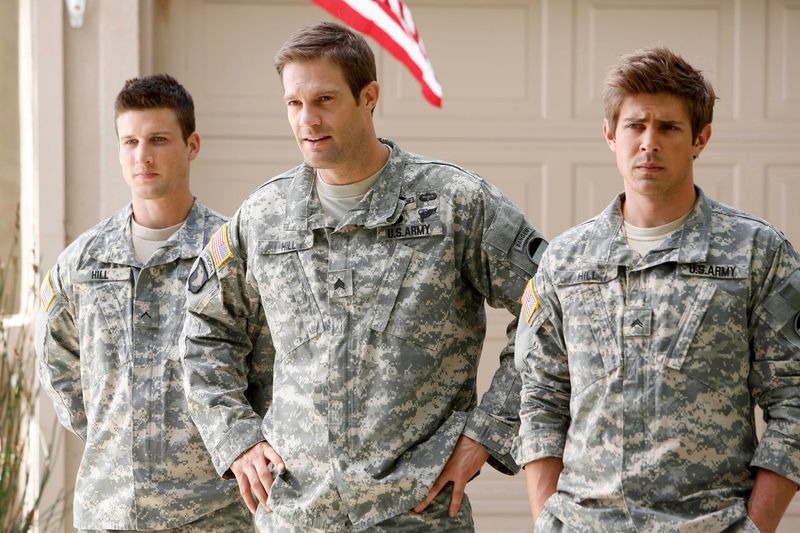
Military comedies are rare birds in TV land, and Enlisted was perhaps too rare for its own good. The show centered on three brothers stationed at a rear detachment unit – where soldiers who can’t be deployed handle duties at home base.
Fox buried this charmer on Friday nights and aired episodes out of order (the classic network death sentence). Yet beneath its goofball exterior beat the heart of a show that respected military families while finding humor in their everyday challenges.
Geoff Stults, Chris Lowell, and Parker Young brought authentic sibling chemistry as the Hill brothers, creating a workplace comedy that balanced laugh-out-loud moments with surprising emotional depth. The show managed to poke fun at military life without ever mocking those who serve.
4. The Middleman (2008)
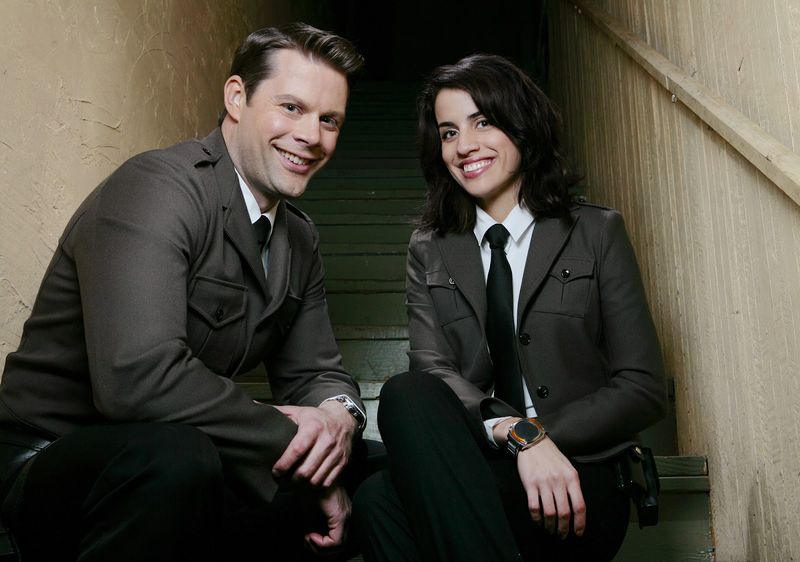
Comic book sensibilities collided with screwball comedy when The Middleman burst onto screens for one glorious season. Struggling artist Wendy Watson found herself recruited by a straight-laced hero known only as The Middleman to battle threats too weird for conventional authorities.
Creator Javier Grillo-Marxuach packed each episode with pop culture references that would make even Tarantino blush. The dialogue crackled with rat-a-tat delivery and gleeful wordplay that rewarded attentive viewers.
In an era before superhero shows dominated television, this ABC Family oddball was fighting trout-eating zombies and solving mysteries involving genetically-modified apes in suits. The show’s knowing winks at genre conventions and self-aware humor would find a much larger audience in today’s geek-friendly TV landscape.
5. Don’t Trust the B—- in Apartment 23 (2012-2013)
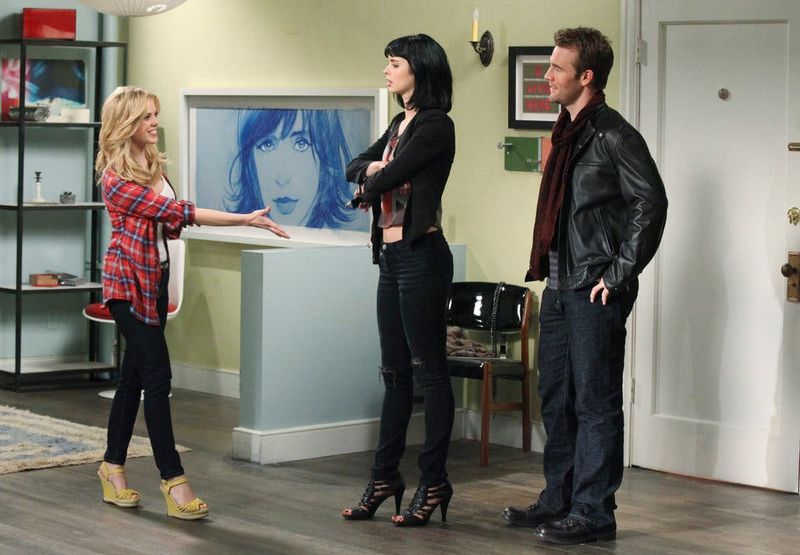
Krysten Ritter’s Chloe was the roommate from hell – and absolute television heaven. This boundary-pushing comedy paired a wide-eyed Midwesterner with a sociopathic party girl and somehow made their friendship both believable and hilarious.
James Van Der Beek playing a narcissistic version of himself was the secret weapon nobody saw coming. His willingness to lampoon his Dawson’s Creek fame produced some of the show’s most memorable moments, including his disastrous stint on Dancing with the Stars.
ABC’s inconsistent scheduling and episode shuffling meant viewers never got to experience the show’s character development as intended. The series juggled edgy humor with genuine emotion in a way that feels like a missing link between the network sitcoms of yesterday and today’s streaming comedies.
6. Andy Richter Controls the Universe (2002-2003)
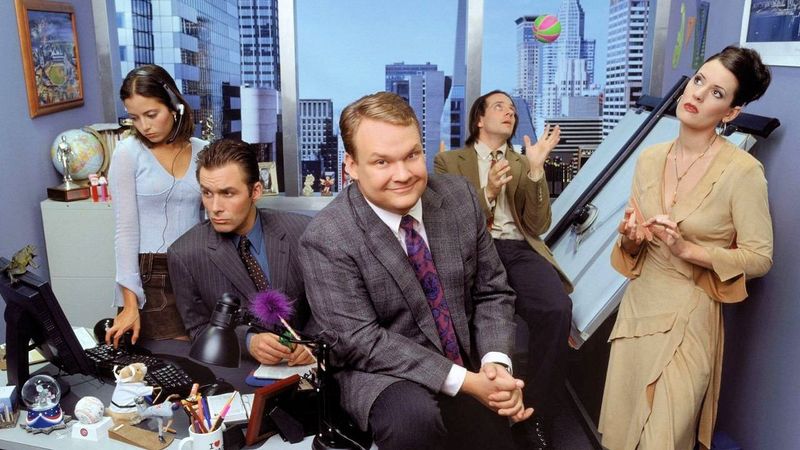
Long before The Office made workplace awkwardness mainstream, Andy Richter was narrating his way through corporate absurdity with surreal fantasy sequences and fourth-wall breaks. As a technical manual writer at a massive company, Andy’s inner thoughts provided the perfect counterpoint to his mundane reality.
The show’s innovative structure allowed viewers to see multiple versions of events – what Andy wished would happen versus what actually did. This playful narrative approach created comedy gold when paired with Richter’s everyman charm and the stellar supporting cast.
Fox executives apparently couldn’t figure out how to market a show this clever, canceling it after just two brief seasons. Its DNA lives on in many modern single-camera comedies, though few match its perfect blend of heart and weirdness.
7. My Boys (2006-2010)
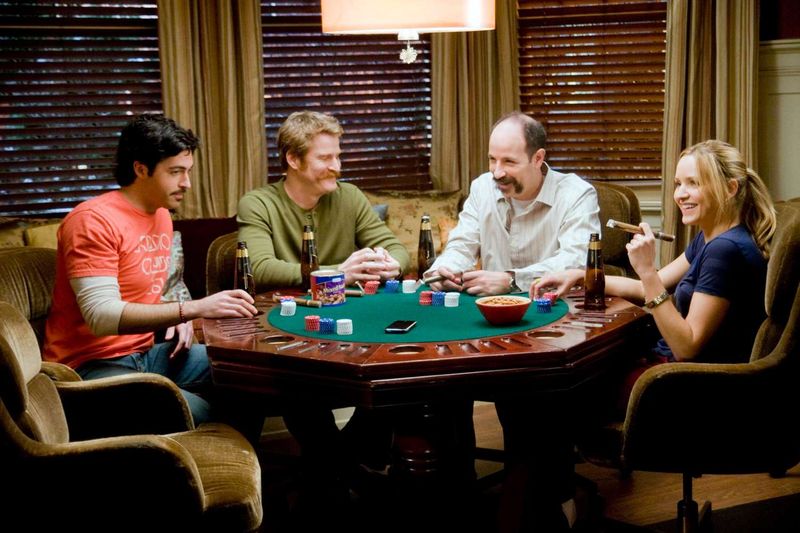
Baseball metaphors and beer flowed freely in this TBS gem about sports columnist PJ Franklin and her predominantly male friend group. While countless sitcoms featured guys hanging out with guys, My Boys refreshingly centered a woman who was one of the guys without making that the punchline.
Jordana Spiro brought authentic charm to PJ, a character who loved sports and poker nights without being written as a tomboy stereotype. The show’s greatest strength was its lived-in quality – these friends felt like people who’d known each other for years, making their poker table conversations naturally funny.
Though it lasted four seasons on TBS, My Boys never broke into the mainstream. The show’s low-key approach to comedy and relationships feels like a missing link between the hangout sitcoms of the ’90s and today’s more grounded comedies.
8. Suburgatory (2011-2014)
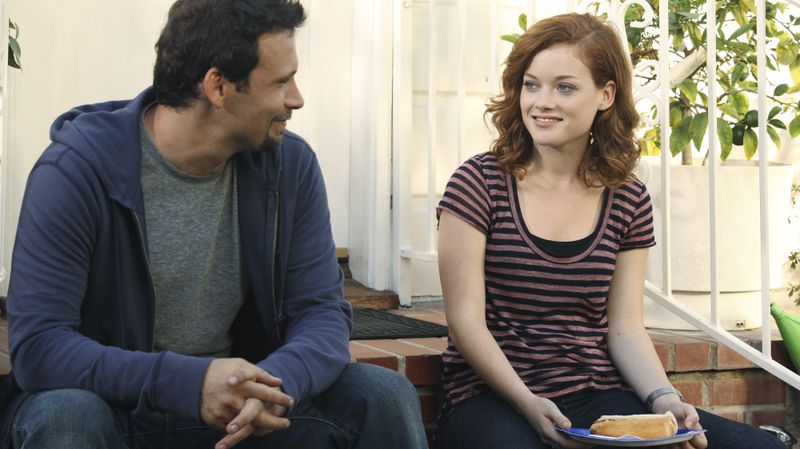
When Manhattan teenager Tessa Altman was uprooted to the pastel-colored nightmare of suburban Chatswin, viewers were treated to one of TV’s most underrated fish-out-of-water comedies. Jane Levy’s deadpan narration perfectly captured teenage disdain for conformity and artificial perfection.
The show excelled at creating heightened versions of suburban stereotypes that somehow still felt grounded in reality. Cheryl Hines’ Dallas and Carly Chaikin’s Dalia started as caricatures before evolving into surprisingly complex characters with genuine emotional depth.
Creator Emily Kapnek crafted a visual language for the show that was instantly recognizable – everything in Chatswin was just a bit too bright, too clean, too perfect. This satirical lens on suburban life created a unique comedy that deserved far more attention than it received during its three-season run.
9. The Class (2006-2007)
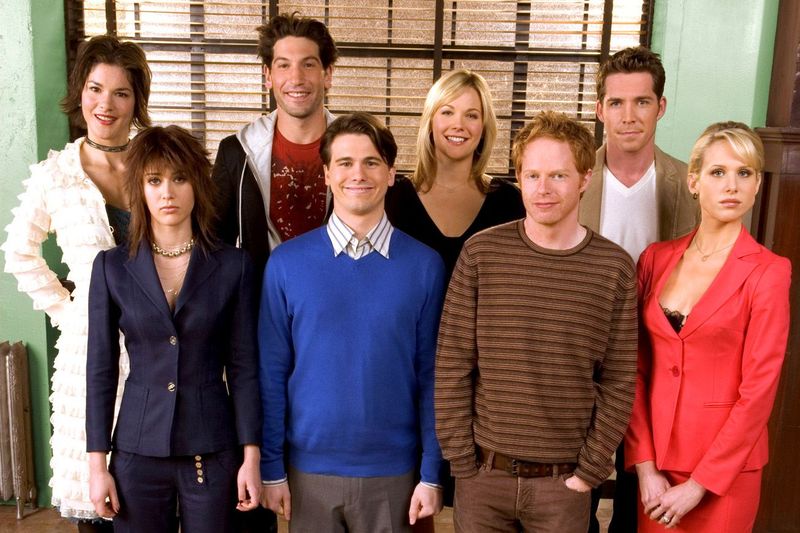
Before creating Modern Family, Jeffrey Klarik and David Crane (of Friends fame) crafted this ensemble comedy about third-grade classmates reunited as adults. The premise – a surprise reunion party gone awry – set up interconnected storylines that balanced laughs with genuine heart.
Jesse Tyler Ferguson and Lizzy Caplan were standouts in a cast brimming with talent that would later populate countless hit shows. The writing deftly handled multiple storylines while developing distinct personalities for each character – no small feat for a freshman comedy.
CBS pulled the plug after one season, despite the show finding its footing and building momentum. Given time to breathe, The Class could have evolved into a worthy successor to Friends, especially considering the creative pedigree behind it and the chemistry developing among its ensemble.
10. Go On (2012-2013)
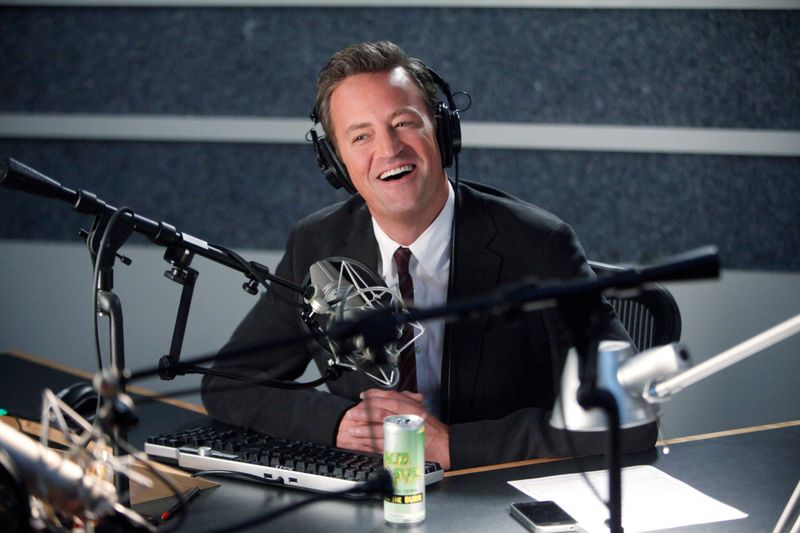
Matthew Perry found the perfect post-Friends role as Ryan King, a sports radio host forced into group therapy after his wife’s death. The premise sounds depressing, but Go On masterfully balanced grief with humor in ways few sitcoms dare attempt.
The therapy group was filled with distinctly drawn characters dealing with their own losses, creating a community of broken people helping each other heal. Julie White’s Anne, a grieving lawyer with anger issues, and Brett Gelman’s bizarre Mr. K provided many of the show’s biggest laughs.
NBC canceled the series after one season, just as it was finding the perfect balance between comedy and emotion. In today’s landscape of comedies willing to tackle heavier themes (like The Good Place and Ted Lasso), Go On feels like it was simply ahead of its time.

Comments
Loading…